
How to Get the Support You Need During a Divorce

How to Get the Support You Need During a Divorce
Originally Published – June 12, 2020
When celebrities announce their divorce on social media, what do you think?
Thousands of responses to the news flood in.
Those announcements are harmless, right?
Maybe. Maybe not.
Here are some of the typical responses when such an announcement is made:
“I really thought you two had it all together”😩
“You were my favorite couple”😶
“If you all can’t make it, there’s no hope for me” 😳
“Are you sure you can’t work it out” 🤬
“You seemed like you really loved each other” 🤦🏽♀️🤦🏽♀️🤦🏽♀️
You’re probably reading this thinking: OMG! This 👏 is 👏 not 👏 helpful‼
My thoughts exactly!
When someone announces their divorce, generally speaking, they are looking for support…
Again, that’s generally speaking…there could be ulterior motives.
If you were to make a similar divorce announcement, this is likely not the kind of “support” you’re looking for‼‼
Feelings of others When a Couple Divorces
Unfortunately, a couple’s divorce often prompts us to respond with our hopes & aspirations for THEIR relationship.
We feel compelled to tell them how we feel!
Announcements aren’t wrong, per se, (it’s your business and prerogative to post what you want), but let’s discuss it.
We’re going to dive into how to prevent non-supportive responses as much as possible.
How to Get the Support You Need During Your Divorce
A divorce is an event that feels like your world is turning upside down. It infiltrates every aspect of your life. It can even shape your existence into something unrecognizable.
Going through a divorce truly takes a village. You need the support of your friends, family, and community now more than ever.
Most people in your life will not understand what you’re going through. When you announce your divorce, you aren’t looking for judgment or commentary on what they think your relationship was or could have been.
While they mean no harm, you want to be able to shape the responses and support you receive to help you get through the other side without losing the people closest to you.
Preventing non-supportive reactions is possible! Keep reading to learn how to do just that.
Peaceful Divorce Solutions | How to Get the Support You Need
The simplest (not to be confused with easy ☺) way to get the support you need from your family and friends is to tell them how to support you AND how not to.
It sounds overly simplified, but it’s an underutilized tool.
On the surface, encouragement from a loved one could sound like this:
“I wish you the best.”
“Let me know if you need anything.”
“I love you no matter what.”
Said with the best intentions, those responses don’t feel natural or normal to most of us, so they are coupled with 3- 5 other messages that you don’t feel are as helpful. You may have to guide your inner circle in the direction you want them to go.
Try out this script:
“Hey(friend/family member name). I wanted to let you know that (Spouse Name), and I have decided to end our marriage. This is a very difficult decision, and we still have a deep amount of (love, respect, concern, etc.) for each other.
I need your support in a significant way right now, and here’s what it looks like. I really need to know that you will be just as kind to him as you have always been. The best way you can help me and be there for me right now is by not asking questions about our process or questioning our decisions. I will share details as soon as I feel mentally ready, but I don’t have it in me right now. We both are doing the best we can for each other and the kids (if you have kids).
If you’re unable to support me in that way, I completely understand, but just know that I will likely need to take some space away from anyone that can’t give me that right now. My final request is that you don’t say “you’re sorry,” bash (spouse name) in front of the kids or me, or tell me that you’re disappointed because I just can’t handle hearing that right now.” (you get to pick what makes sense for your situation)
I’m aware that this script assumes that your decision to end your marriage is mutual (I know that may not be the case). However, if you feel like it could work, It may also indicate that your divorce is not overly hostile or high conflict.
Check out our Divorce Support Pack to grab that script and others to help you start & get through your divorce journey.
Peaceful Divorce Solutions | The Breakdown
While we always hope to have a peaceful divorce, it can be more complicated.
You might even be reading this thinking, “yeah, right, this will never work.
This doesn’t have to be the exact script you use, but I promise something similar can work with people that genuinely care about you and respect your wishes.
This is one example of what a modern mature divorce experience can look like.
You’re being specific and kind in your request while disarming someone of their gut reactions.
You’re also setting expectations and boundaries. Your family may still talk about you when you end the phone call, but you can’t control that anyway, so who cares!
If the person responds in a way that dishonors your request, then they may have to be cut out of your communication circle, at least for a little while. As the saying goes, when people show you who they are, believe them.
Protect Yourself During a Divorce
While sharing the details of your marriage during the good times is normal and feels amazing- It’s important to practice caution about sharing your pain, anger, and disappointment as openly.
In the FIIRM hero community, I shared guidance on revealing scabs versus wounds. (Shout out to Nikki Elledge Brown, btw)!
People will feel inclined to tell you how they feel about your relationships. They’ll also very quickly tell you how they feel about your soon-to-be ex as soon as you give them the space to do so.
The fastest way to open that door is by telling them everything you dislike about being married to your soon-to-be-ex.
Whether vocally or through social media, sharing your process and heartbreak, while cathartic, can be just as damaging. It invites the audience, some of who may be strangers and don’t really know you or your spouse, to give their perspective on your divorce.
Unfortunately, venting on social media brings a double whammy as it can also be used against you in court.
Any decent divorce attorney will tell you that it’s in your best interest not to share intimate details about your divorce on social media.
Along with that they may even suggest not sharing with your extended family/friends until it’s over.
It doesn’t matter if it’s:
👉A DM
👉 A private message
👉An individual or group text
👉 A closed private Facebook group
None of that matters. A simple screen shot can cause harm to your case.
Coping with divorce is complex, especially if we try to go through it alone. We all need someone we can trust and confide in.
Check out our Divorce Support Pack to help you start & get through the journey.
But we have to be careful who we invite to listen to our true feelings or strategies as the proceedings are ongoing.
Remember that your life is changing enough without adding to the harm and damage you can do by publicly announcing your anger and hurt.
If you do feel compelled to vent publicly, tread carefully and just be prepared for the possibility of a couple of chinks in your armor.
Below is a quick tip for getting support and protecting yourself during your divorce:
Three is usually more than enough company when you’re going through a divorce. Find two true friends and one therapist.
When you’re ready to scream:
“He makes sick. I can’t stand him”
“I don’t understand why he’s being so damn unreasonable”
“I wish I never had to talk to him again”
These are the only people that should get to hear it.
Divorce can be hard enough without worrying about judgment, disappointing others, and betrayal — keep that circle as tight as possible to protect your heart (and your case!).
We developed a tool to help you navigate your pre & post-divorce journey. Check out our Divorce Support Pack to give you the tools you need to come out on the other side okay.

Nikki Tucker
Founder & Managing Director
Nikki is an experienced financial services professional, a Certified Divorce Financial Analyst ®, and the primary divorce financial strategist for The FIIRM Approach. She helps female breadwinners prepare for divorce to avoid common financial mistakes and confidently maintain their financial security post-divorce. She uses proven strategies within the FIIRM Approach methodology so her clients can manage their money, debt, and credit and be connected to the right resources for the next phase of life. TAKE ACTION & LEARN about the tools that can help make your pre and post-divorce easier. Grab your FREE Divorce Support Pack.
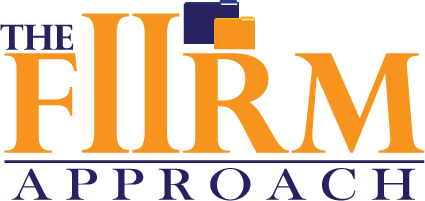
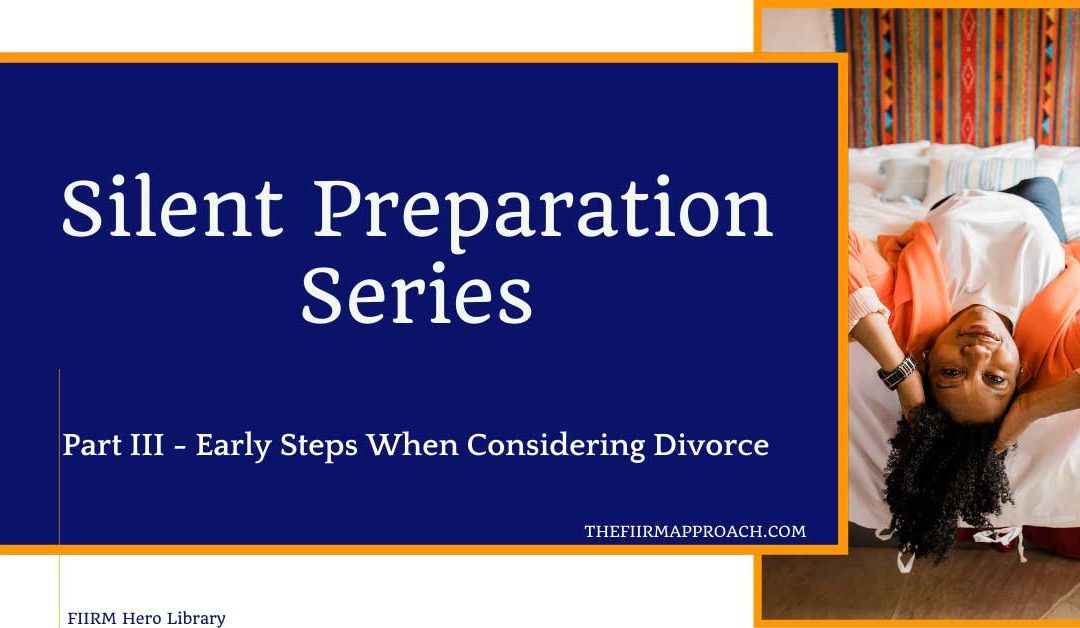
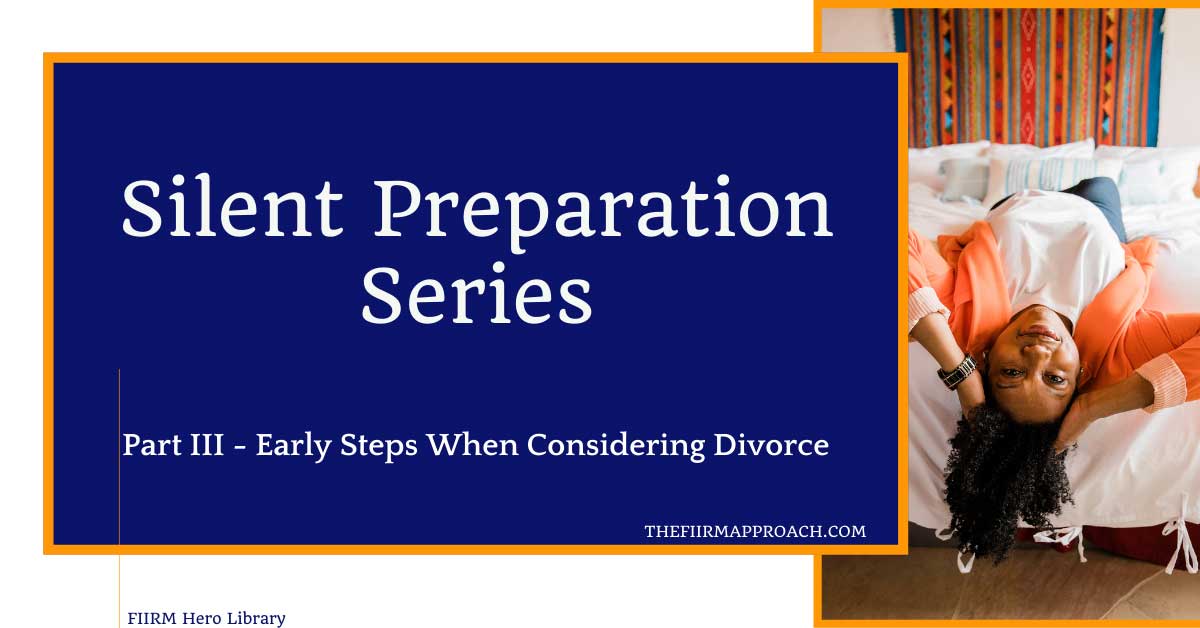
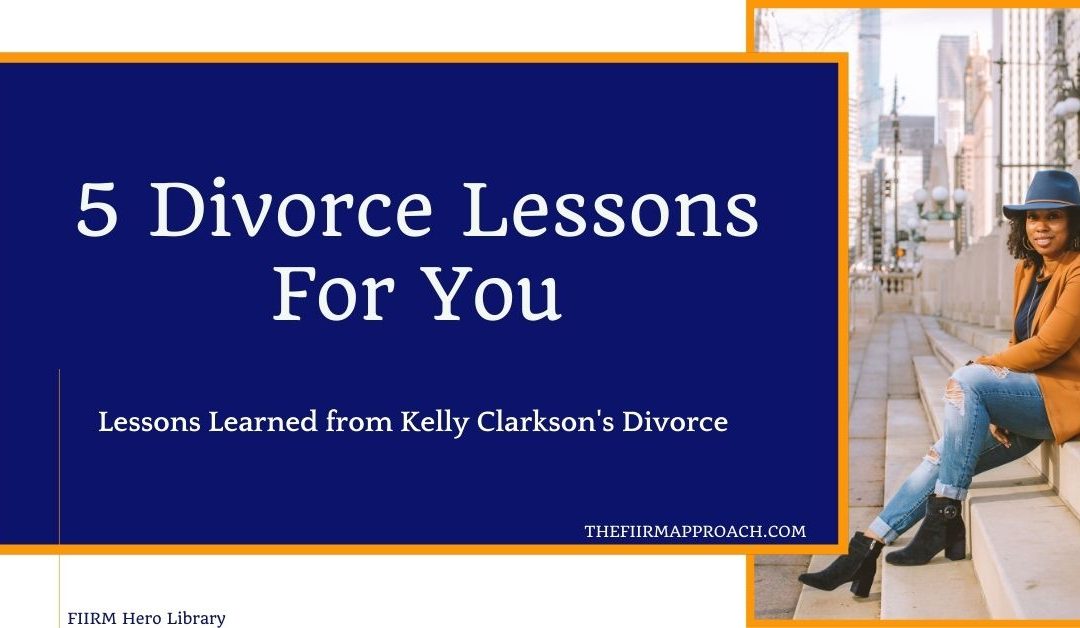
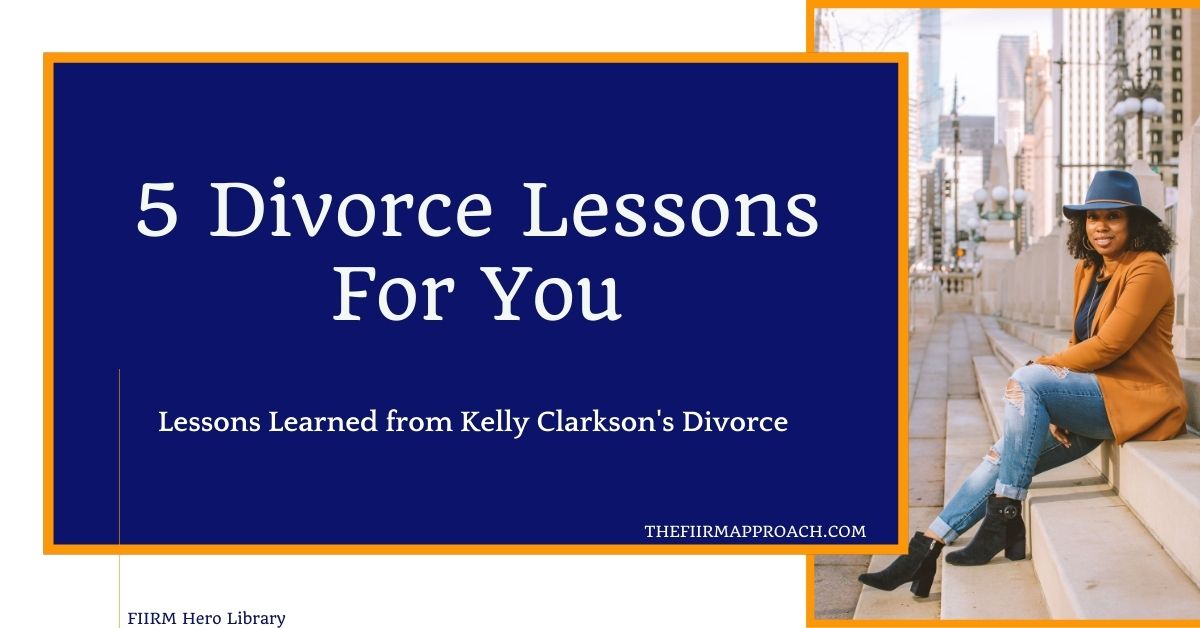
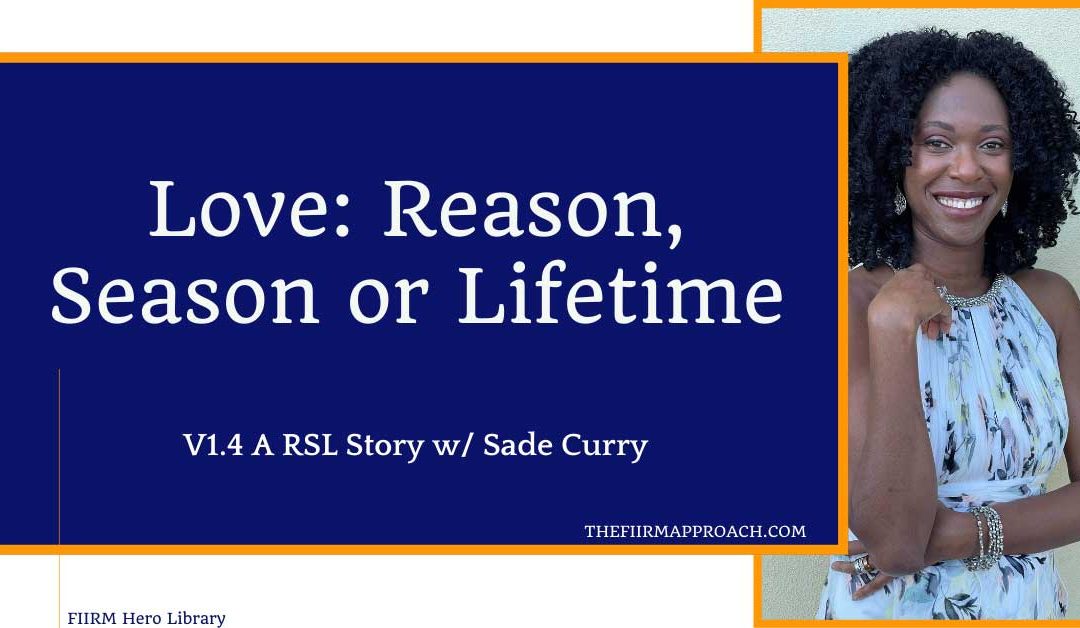
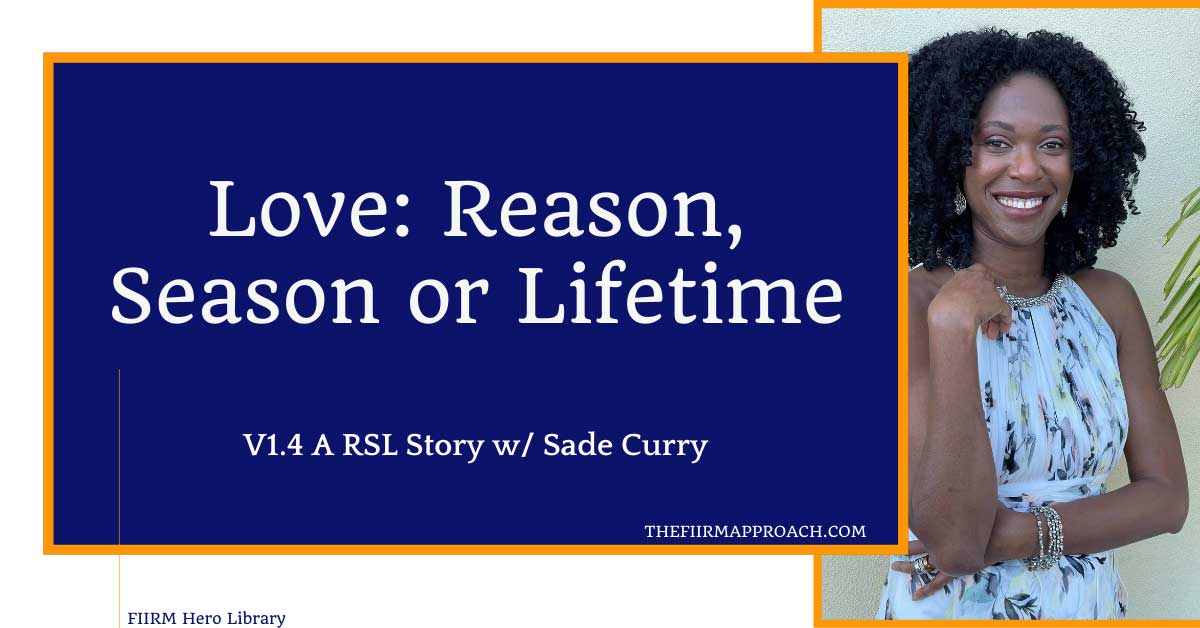




Recent Comments